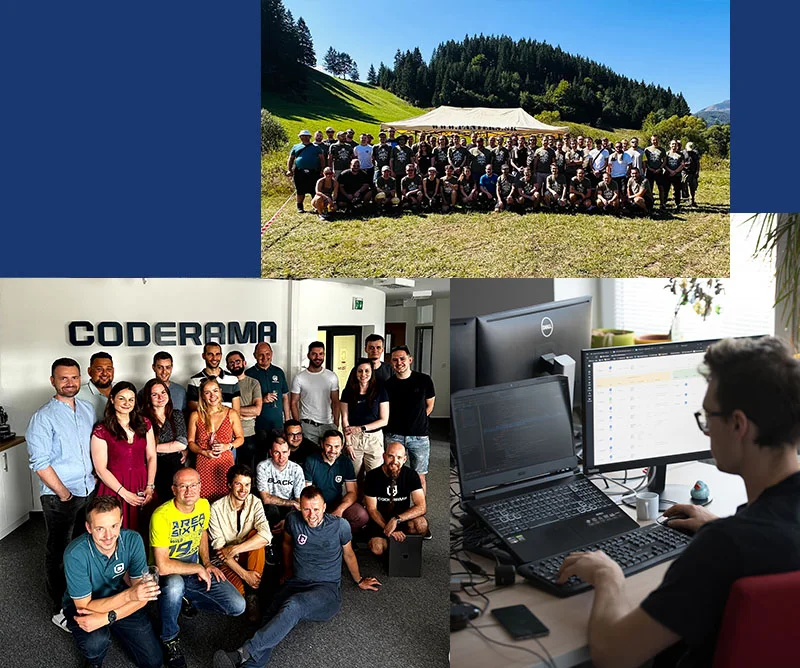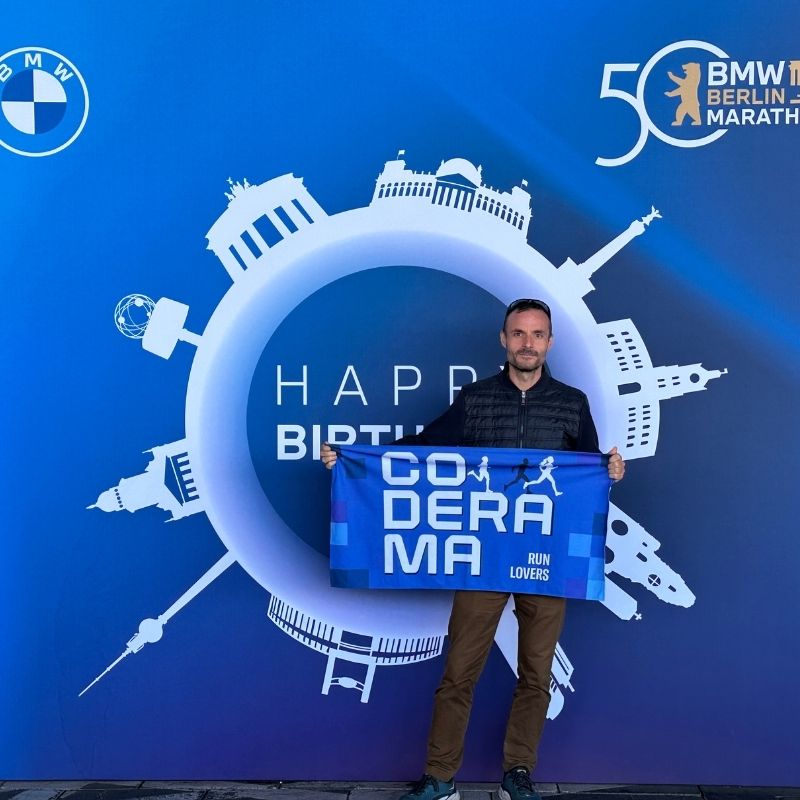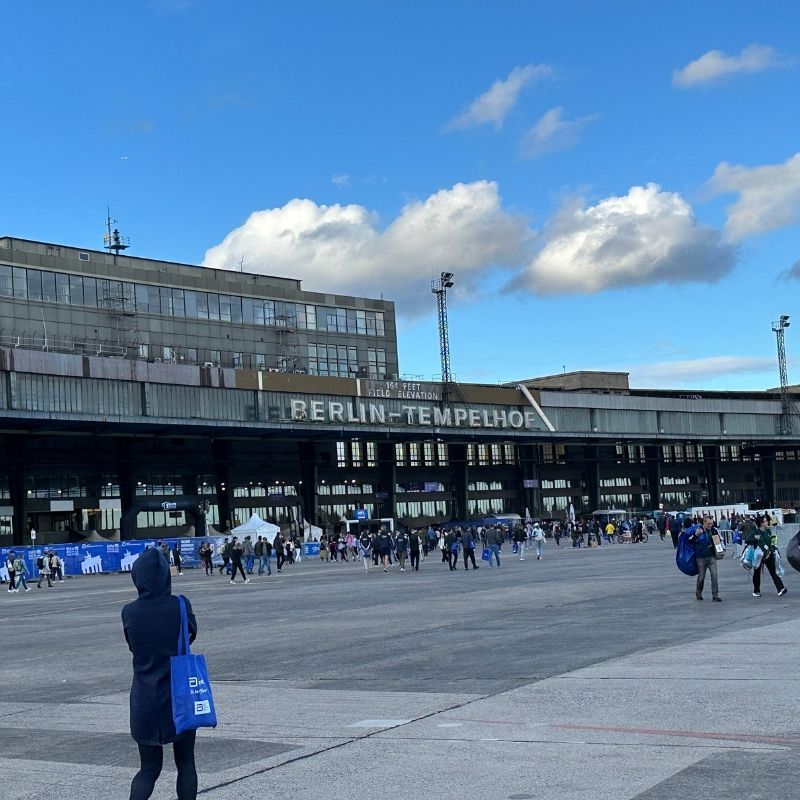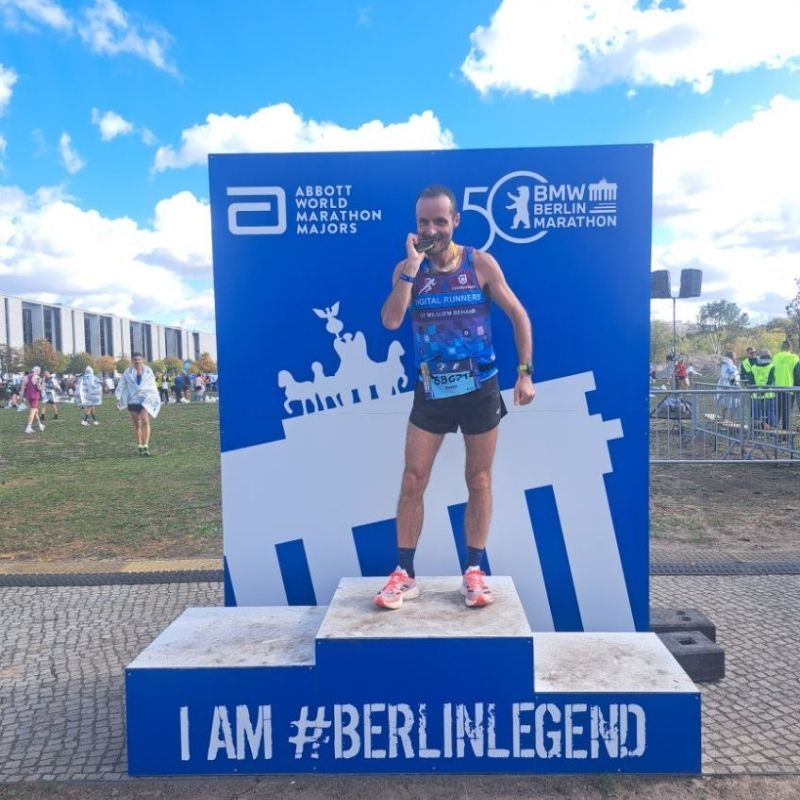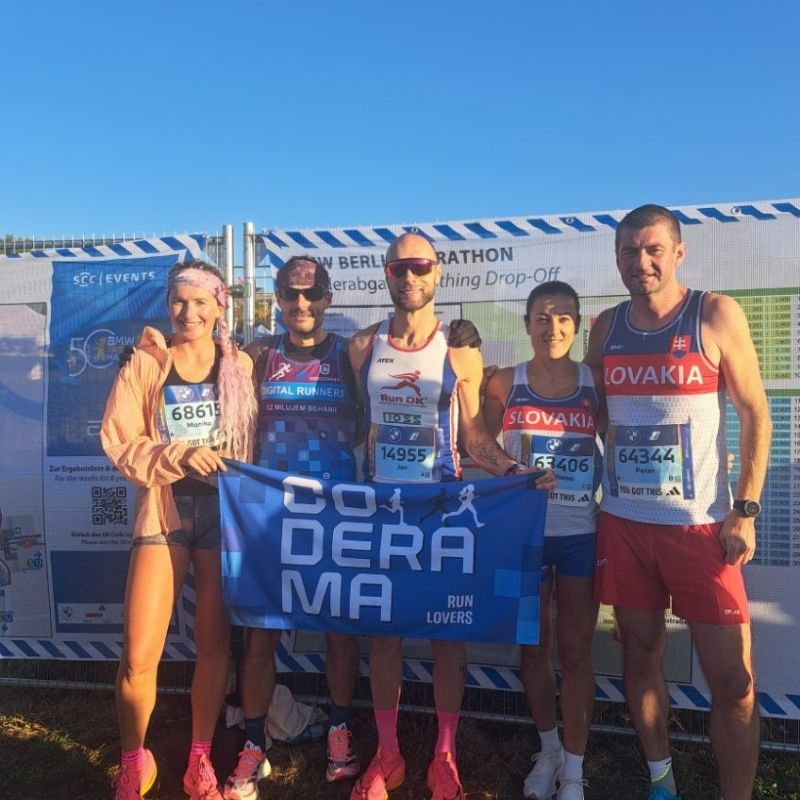450 km per month and victory over fatigue: How our colleague Peter tackled the Berlin Marathon.
Alexandra Gálfyová |30.10.2024
Preparing for the Berlin Marathon was a challenge full of training, illness and personal bests. Read how my colleague Peter tackled his goal on the iconic course.
How was your preparation for such a big marathon and what was the most challenging part of your training?
Preparation started about 3 months before the marathon. It was divided into volume, performance and calming parts. During the volume part I ran as many miles as possible at low heart rates, about 450 miles per month. This phase lasted for 6 weeks, then I gradually moved into the performance phase, which aimed to prepare my legs for the marathon load. In this phase, I ran everything from recovery runs to 25km tempo runs at a pace of about 3:40/km. It was a really tough part of the training, as I ran a half marathon at a fairly fast pace almost every fourth day. The last 3 weeks have been moving into a calming phase. This phase is very important for recovery and mental preparation. After hard workouts the body is tired and prone to illness. Although I tried to stay healthy, about 10 days before the marathon I got a fever and was treated for about 5 days. Subsequently, the rest of my family gradually got sick as well.
The Berlin Marathon is known for its fast course and amazing atmosphere. How would you describe your experience of running in this iconic city?
Answer: The course was really fast and there were countless people around the whole route cheering us on. There wasn't a "dead" spot, even in the underpass there was cheering. For the first 30 km I still had enough strength to take in my surroundings, so I got a pretty good look at Berlin. The last 7 km I don't remember at all though, the only thing that sticks in my mind was the Brandenburg Gate - my light at the end of the tunnel. Just 300 meters behind it was the finish.
Did you have any key moments during the run when you had to overcome a crisis or use a special strategy to make it to the finish?
I ran the first half as planned, at a pace of about 3:27/km. Later I slowed down to about 3:30/km. This plan worked great until mile 35, then I was starting to feel like it wasn't going to be easy. From the 38th kilometer it started to get very difficult, the pace was dropping, but I gave it all I had and didn't give up. My stubbornness didn't allow me to get into my stride, so I fought until the finish.
What motivated you to take part in the Berlin Marathon?
Berlin is one of the 6 biggest marathons in the world, it is relatively close and affordable. It is one of the fastest and most beautiful marathons in the world, which is motivation enough for any runner. My goal was to run a new personal best, which I did, although I haven't yet achieved a time under 2:30. However, I believe I have what it takes and I am looking forward to another great marathon.
How did you manage to stay motivated during the long months of training?
It's not so much about motivation. Even if I didn't go for the marathon, I would still train. Running is relaxation for me. I run because I enjoy it, not for medals or marathons. I compete mainly with myself and I enjoy pushing my own limits.
What are your personal motivations when running marathons and how do they affect your discipline and attitude in other areas of your life?
The marathon is a royal discipline and it's a really tough race that is hard on the body. That's why only someone who has trained honestly for it should line up at the start. There used to be a marathon time limit of 4 hours - if you don't meet that time, you haven't run it, you've passed it. I'm motivated by the freedom that running provides, and I want to show it to others. I know people who would like to run but can't because of health issues. That's why, when I can, I enjoy and promote this wonderful sport.
